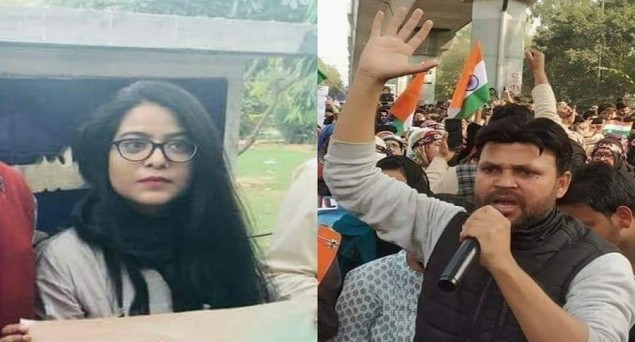India Tomorrow
NEW DELHI, MAY 30— The European Parliament’s Subcommittee on Human Rights (DROI), a parliamentary body that actively monitors human rights developments across the globe, has expressed concerns about the arrests of tribal rights activists Anand Teltumbde and Gautam Navlakha and young leaders of anti-CAA protests like Khalid Saifi, Safoora Zargar, Meeran Haider and Asif Iqbal Tanha – the last three are students of Jamia Millia Islamia in Delhi.
In a letter to Union Home Minister Amit Shah on Thursday, DROI chairperson Maria Arena said her panel is “closely following the protection of human rights defenders in India and wish to express serious concerns about the recent arrests of Anand Teltumbde and Gautam Navlakha by the National Investigative Agency.”
She further said: “It is particularly alarming to note that human rights defenders cannot conduct advocacy activities, notably in favor of India’s poorest and most marginalized communities, without becoming subject to intimidation and harassment, but equally worrying is the fact that terrorism charges, including under the Unlawful Activities Prevention Act (UAPA), are used to silence them.”
In the letter, she also expressed concern at the recent arrest of students and activists, who have been leading the protests against the Citizenship Amendment Act (CAA), under the stringent anti-terror law UAPA.
“To date, the European Parliament has noticed that various forms of legitimate peaceful protests against laws, policies and governmental actions, including the Citizenship Amendment Act, have been portrayed as terrorist activities under this legislation, resulting in a number of arrests under this umbrella. This is notably the case for human rights activists such as Safoora Zargar, Gulfisha Fatima, Khalid Saifi, Meeran Haider, Shifa-Ur-Rehman, Dr Kafeel Khan; Asif Iqbal and Sharjeel Imam who were recently arrested by the Police,” DROI chairperson said.
She expressed apprehension about misuse of UAPA due to the “vague definition of ‘unlawful activities’ and ‘membership of terrorist organisations’”.
“Against this background, there are also increased fears that the legislation might confer discretionary powers upon State agencies. Indeed, the vague definition of ‘unlawful activities’ and ‘membership of terrorist organisations’ could allow for wide discretion by the government in applying the law. Such a process would substantially weaken judicial oversight and the protection of civil liberties in the country,” reads the letter.
The EU’s human rights body has demanded the government to stop criminalizing the work of human rights activists.
“We strongly believe that measures should be urgently taken to stop impeding and criminalising the work of human rights defenders by means of overly broad national security legislation and to respect their freedoms of association and expression. India should do much more to ensure a safe and conducive environment for civil society working in the country and consider enacting a law on the protection and promotion of human rights defenders,” said the panel.
In view of the COVID-19 pandemic, the rights panel said, the government should implement the Supreme Court’s March 2020 guidelines regarding release of prisoners.
“The unprecedented situation of the COVID-19 pandemic has led to repeated calls by the United Nations for the immediate release of prisoners of conscience as part of overall efforts to contain the outbreak. This collective endeavour was echoed by the Subcommittee on Human Rights during its meeting of 11 May 2020. We trust that it is our common duty and responsibility to protect human rights without discrimination and thus, encourage India to join in and implement fully the guidelines adopted by its Supreme Court aiming at reducing detainee population at this difficult time….” reads the letter.
The union government has not yet reacted to the EU rights panel’s letter. However, in the past, it has usually rejected such criticism by foreign panels.
In January this year, some MPs of European Parliament had moved a resolution against CAA but EU had decided not to put to vote the resolution. Reacting on the development, Ministry of External Affairs Spokesperson Raveesh Kumar had reportedly said CAA is an internal matter of India.
“As I have mentioned earlier, CAA is an internal matter of India. It has been adopted though due process and democratic means. We will continue to engage with the MEPs, the European Parliament and other stakeholders in this matter,” the MEA official had said.
CAA, passed by the Indian Parliament on December 11, grants citizenship to non-Muslim religious minorities from its neighbouring countries, namely Hindus, Sikhs, Christians, Buddhists and Jains from Pakistan, Bangladesh and Afghanistan. Protests against the citizenship law as well as government move for updation of National Population Register (NPR) and National Register of Citizens (NRC) had erupted in various parts of the country and continued till the nationwide lockdown was announced in the last week of March in order to contain the spread of Coronavirus.





